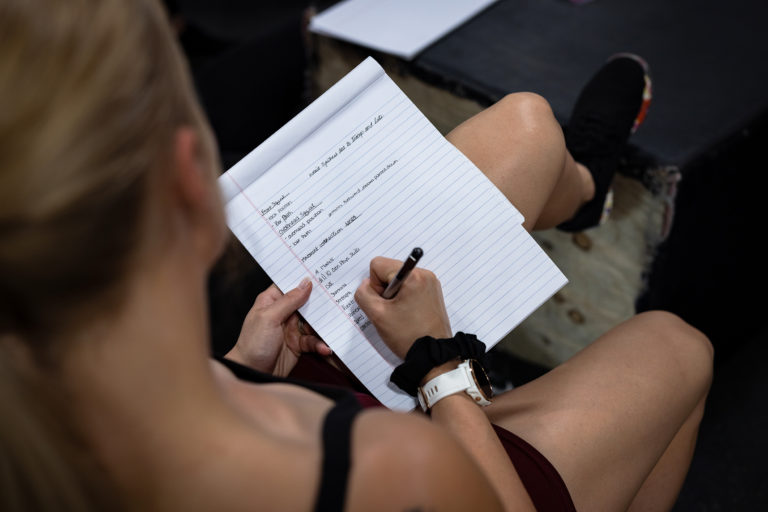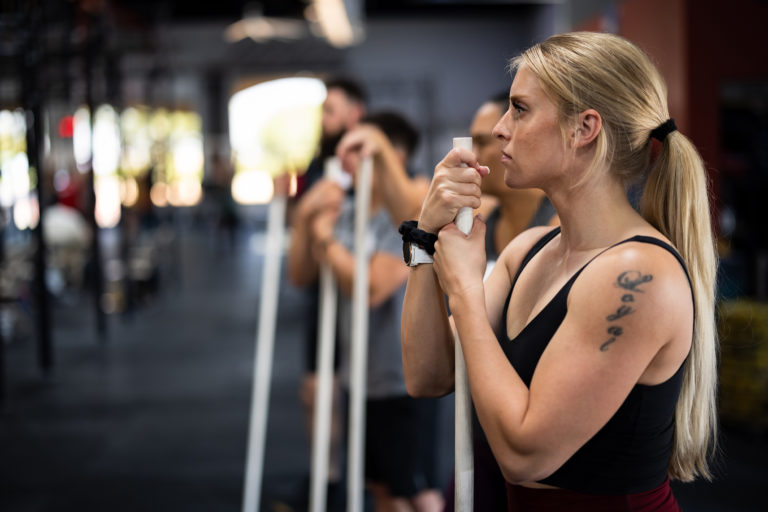As a coach or affiliate owner, you’re tasked with a multitude of responsibilities such as executing well-run classes, teaching private training sessions, assisting members at the front desk, organizing clinics and events, and yes, keeping up on email. It’s no surprise it may feel overwhelming to also find time for professional development for yourself and your coaching staff.
Offering professional development opportunities for coaches, however, doesn’t have to be a chore, and these opportunities don’t have to be multiday, polished efforts from third-party sources. If you build them into your regular workdays, you’ll always be ahead of the curve.
So what exactly is professional development and why should you consider incorporating it for your team?
Professional development is continuing education designed to help employees expand their skill set, further their careers, and stay current on industry trends and developments.
Professional development can be in the form of weekend courses, or it can be piecemeal. Lunch-and-learns, talks from experts, online courses, drills and exercises, and literature reviews are all examples of resources you can provide to your coaches for professional development. These efforts can be short, and while they may appear segmented, the consistent touchpoints accumulate and can have a considerable impact on your team. Take, for example, a bimonthly, one-hour professional development session. Over a year, that equates to 26 hours of work, roughly equal to one three-day course.

Regularly creating micro-learning environments supports ongoing conversation. The goal is not necessarily to be able to apply what is learned in the next day’s class but rather to add experience and critical thought to your toolbox. For example, a coach could learn about different body types and how they should look in a deadlift; however, they may not need or use that information for years to come when they coach an athlete with an abnormally long torso and short legs.
For coaches and box owners looking to provide ongoing development for their staff, the Professional Coach serves as an accessible and relevant resource to run professional development exercises at your affiliate’s staff meetings.
How to Use the Professional Coach for Staff Meetings
Using the Professional Coach for a staff meeting can be as simple as selecting one piece of content and then framing a discussion around it during the meeting. Here’s how you can do it:
Step 1: Select a Piece of Content From Each Monthly Issue
Read through the month’s issue and decide which piece of content would be the most valuable to your team.
Consider:
- The topic: Does the piece touch on a topic that your team is particularly interested in or asks about frequently?
- The form: Using various forms of content can drive engagement and take advantage of different learning styles and interests. Look to incorporate articles, interviews, and videos to mix things up.
- The time: Sometimes you only have time for a 15-minute catch-up with your coaches. Pull out a practical tool from the current issue and show and tell how you implemented it in an earlier class.
Step 2: Design an Exercise to Work With the Content
Individuals will grasp the material more thoroughly when there is an interactive component in the meeting. After reading or watching the piece of content, have your staff answer a set of questions or prepare questions for your staff to discuss together. You could also prepare an exercise on the coaching floor to help coaches practice and apply the topic.
Step 3: Provide an Additional Resource
Lastly, provide an additional resource for coaches who would like to learn more about the topic.
Examples From Previous Professional Coach Issues
Here are a few examples of how to use previous articles and videos from the Professional Coach for staff development opportunities:
Read the Coach Evaluation Packet one-sheet article and review each sheet as a team. Discuss various ways your team can use these sheets at your gym to further encourage development, feedback, and cohesion in coaching.
Additional Resource: What Makes a Great Coach
Spend the first third of the session reading “Set the Bar High,” an article that details the effect of coaching expectations and their role in helping individuals reach their potential. Prepare three to five questions for your team to answer. Specifically, ask them to identify an athlete who has exceeded their expectations in part because of the belief and support they received from their coaches. Also, have your team identify athletes who may have been overlooked or who need a different tactic of support to progress. Spend the last 10 minutes discussing how you can support this athlete better in the gym.
Additional Resources: Mindset: The New Psychology of Success by Carol S. Dweck and how to apply it in the gym.
Scaling CrossFit Workouts: The Interview
Take 15 minutes to watch the interview with Jeremy Gordon (CF-L4) on scaling. After watching the video, have your coaches answer a series of questions on scaling, specifically covering the pitfalls beginner, intermediate, and advanced coaches make. Take the remaining time to discuss the coaches’ answers and how your team can further improve the depth of individual scaling offered at your gym.
Additional Resource: Scaling CrossFit Workouts
We have included a sample coach development exercise for this piece of content. It is included at the end of this article.
Benefits to Your Staff and Business
There are countless benefits to hosting professional development staff meetings at your affiliate. Many of the benefits are built over time, so it’s important to remember the small efforts add up.
Professional development staff meetings:
- provide your team with an opportunity to interact without getting distracted by the day-to-day demands of the business.
- enable a time for your team to work on the business rather than in the business.
- create an opportunity for junior staff members to learn from senior staff. It also helps to remind senior staff of the current level of each coach, aiding understanding and helping to inform how they can mentor effectively on the coaching floor.
- give your coaches more time to practice coaching with their colleagues and add more tools to their tool belt. It also models the importance of ongoing professional coach development.
- help develop a cohesive coaching staff where everyone is aligned in their understanding and application of CrossFit.
A commitment to developing your coaching staff is a long game, and the effects are cumulative and considerable. Remember, the aim of professional development opportunities is not to solve all the problems you’re seeing on the coaching floor. Rather, it’s to give your coaches time to think, dissect, interact, and develop their skills and careers as coaches.
About the Author
Nicole Christensen is the owner of CrossFit Roots in Boulder, Colorado, a Certified CrossFit Coach (CF-L4), CrossFit Seminar Staff Flowmaster, and Senior Content Developer at CrossFit. She is the Managing Editor of the Professional Coach publication and enjoys coaching athletes in group classes at her affiliate.

Using the Professional Coach to Create Purposeful Staff Meetings